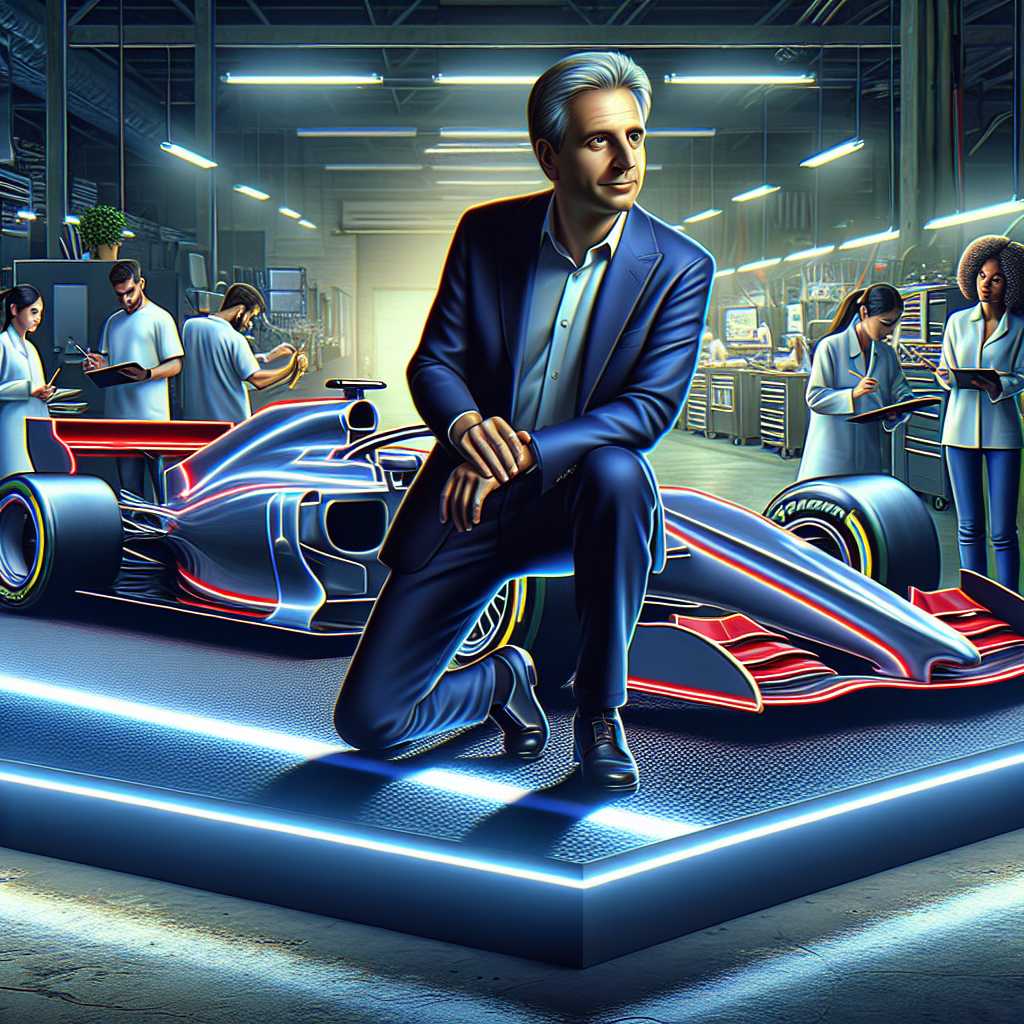Example Article
From Racer to Team Principal: A Journey of Leadership
Christian Horner’s rise from a modest racing driver to one of the most influential team principals in Formula 1 is a testament to his vision and leadership skills. Born in 1973 in Leamington Spa, England, Horner’s early racing career was marked by promise but limited success. Recognising his strengths lay beyond the cockpit, he transitioned into management at a remarkably young age, becoming the youngest team principal in F1 history when he took charge of Red Bull Racing at just 31 years old.
This appointment came at a time when Red Bull Racing was a fledgling outfit struggling to establish itself amidst giants like Ferrari and McLaren. Horner’s strategic mindset and ability to foster talent quickly transformed the team into a competitive force. Under his stewardship, Red Bull secured four consecutive Drivers’ and Constructors’ Championships from 2010 to 2013, signalling a new era in Formula 1.
Horner’s leadership style combines tactical acumen with a collaborative approach, fostering an environment where innovation thrives. His focus on nurturing young talent, both on and off the track, has ensured that Red Bull remains at the cutting edge of Formula 1, adapting swiftly to the sport’s evolving technical regulations and competitive landscape.
Innovation and Technical Partnerships: Shaping Red Bull’s Competitive Edge
One of Christian Horner’s defining characteristics as a team principal is his unwavering commitment to innovation. Recognising early on that success in Formula 1 depends heavily on technological advancement, Horner has been instrumental in forging key technical partnerships that have propelled Red Bull Racing forward.
The collaboration with engine manufacturers has been particularly crucial. Despite initial setbacks with Renault engines, Horner’s negotiation skills and strategic foresight facilitated Red Bull’s eventual partnership with Honda, which played a pivotal role in the team’s recent championship victories. This alliance not only enhanced performance but also demonstrated Horner’s ability to manage complex relationships between commercial interests and sporting ambitions.
Moreover, under his guidance, Red Bull has invested heavily in its own technological infrastructure, notably through the expansion of its state-of-the-art factory and wind tunnel facilities. These investments have allowed for rapid development cycles and innovative aerodynamic solutions that often set trends within the paddock. Horner’s understanding that innovation extends beyond just the car itself—to include data analytics, simulation technologies, and driver development—has ensured Red Bull remains a benchmark for excellence.
The Human Factor: Managing Personalities and Cultivating Team Spirit
In Formula 1, managing high-profile drivers requires more than just technical knowledge; it demands emotional intelligence and diplomacy. Christian Horner excels in this regard, having successfully managed some of the sport’s most prominent personalities such as Sebastian Vettel and Max Verstappen.
Horner’s approach emphasises clear communication and mutual respect, creating an atmosphere where drivers feel supported yet challenged to perform at their best. His ability to handle intense internal competition while maintaining harmony within the team has been crucial in sustaining Red Bull’s winning momentum. The delicate balancing act between fostering rivalry and ensuring cooperation speaks volumes about his leadership prowess.
Beyond drivers, Horner also invests in building a cohesive team culture among engineers, strategists, and support staff. His open-door policy encourages innovation at every level while instilling a shared sense of purpose. This human-centric management style not only boosts morale but translates into on-track success by ensuring that every member is aligned towards common goals.
Legacy and Future Prospects: Steering Red Bull into a New Era
As Formula 1 continues to evolve with new regulations focusing on sustainability and cost controls, Christian Horner faces fresh challenges that will test his adaptability once again. His track record suggests he is more than capable of steering Red Bull through this transformative period while maintaining their competitive edge.
Looking ahead, Horner’s vision includes further investment in sustainable technologies and embracing hybrid power units’ full potential. His advocacy for balancing technological progress with environmental responsibility positions Red Bull favourably as the sport moves towards greener initiatives.
Ultimately, Christian Horner’s legacy is defined not only by championship trophies but by his holistic approach to building an enduring institution within Formula 1. By combining technical innovation, strategic leadership, and human management skills, he has crafted a blueprint for success that will influence motorsport leadership for years to come.
Notes
- Christian Horner became the youngest F1 team principal at age 31.
- Under Horner’s leadership, Red Bull Racing won four consecutive Constructors’ Championships (2010-2013).
- The partnership with Honda began in 2019 under Horner’s tenure and led to multiple race wins.

